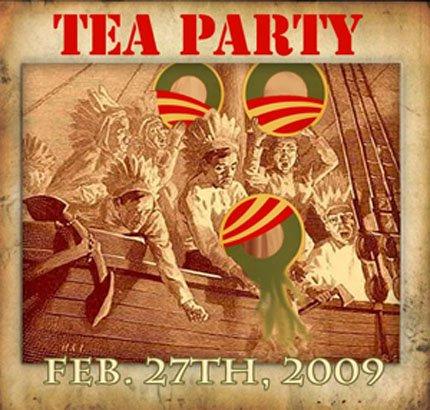I am a fortunate blogger indeed. In response to my recent post arguing that the Second Amendment conveys no Constitutional right to treason, I have been gifted with no fewer than sixteen links to, or digital copies of, the Declaration of Independence—invariably with the comment that if I would just pull my head out of various parts of my anatomy and read it, I would understand how fatally flawed my communistic beliefs really are.
However, as much as I love free books—electronic or otherwise—I do have to admit that I have read the Declaration of Independence. I have read it many times, I have taught it to students for two decades, and I can quote large portions of it by heart. I consider it to be one of the greatest documents ever created by human hands. And if somebody were to ask me what impressed me the most about the Declaration of Independence, I would answer thus: that the courageous men who signed it were profoundly aware that, by doing so, they were committing an act of treason that could never be forgiven by the British Crown.
They knew that they would be executed as traitors if they failed to prevail in their armed rebellion. They had no doubt whatsoever that they were acting outside of British Law, and they did not claim to be acting as good citizens of the empire. They pledged their lives, their fortunes, and their sacred honor to the cause, knowing that the first two, at least, were unquestionably on the line. It was treason, and they made the most of it.
Of all the comments I received, the most baffling to me were the ones that said, “By your logic, then, the Founding Fathers were traitors?????” Of course they were, and every one of them understood this profoundly.
The Declaration of Independence unquestionably recognizes a natural right to revolution. Nobody who has read the document and understands anything about the period could possibly say otherwise. But this is not the same as asserting a legal right to revolt, which is not even logically possible. The signers of the Declaration of Independence did not assert their legal rights under British Law; rather they rejected the law entirely and asserted their right to dissolve the social contract that it created. None of them put “God Bless the Redcoats” bumper stickers on their carriages.
It is this natural right to revolution that Alexander Hamilton refers to in Federalist #28 (another document that I have allegedly never read). “If the representatives of the people betray their constituents, Hamilton argues, “there is then no resource left but in the exertion of that original right of self-defense which is paramount to all positive forms of government.” It would be perverse to read in Hamilton’s words an explication of the Second Amendment, which had not been written yet and which was part of the Bill of Rights that Hamilton strenuously opposed.
It is only recently that gun advocates have characterized the Second Amendment as some kind of “last resort against tyranny” through which the Constitution sanctions armed rebellion. This is simply not how constitutions work. The purpose of a constitution is to constitute a government; the purpose of a revolution is to undue that constitution by force. The US Constitution is not the USS Enterprise. It does not come with an autodestruct sequence.
None of this is to say that America’s government could not become tyrannical. It could, and, were that to happen, it would be the natural right and duty of Americans to stand against it. This would be the exercise of a natural, but not a legal right. My argument here goes well beyond the historical and the logical and becomes simply grammatical: no law—and especially not the supreme law of the land—can make it legal to do illegal things.
There is a huge logical gap between the completely valid argument that the Founders recognized the natural right to revolution in the Declaration of Independence, and the historically unsupportable assertion that they built the legal right of revolution into the Constitution through the Second Amendment. In this gap lies all of the intellectual and moral seriousness with which our Founding Fathers took the revolution that they were embarking upon when they pledged their lives, their fortunes, and their sacred honor to each other and the cause.
